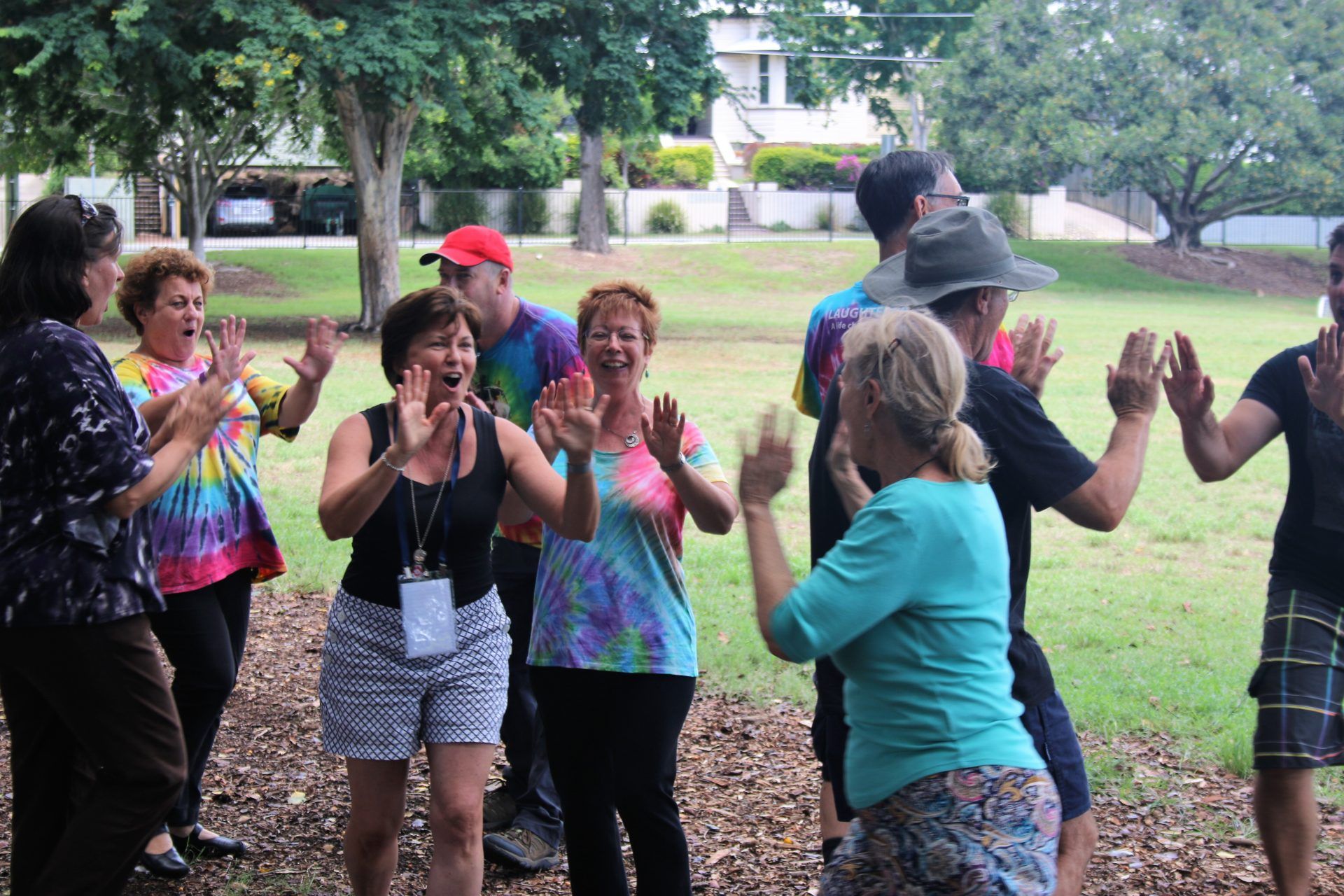
Laughter yoga’s contribution to mental wellbeing
The World Health Organisation describes mental health as an integral and essential component of health.
It’s more than the absence of mental disorders. Indeed, WHO defines mental health as:
“a state of well-being in which every individual realizes his or her own potential, can cope with the normal stresses of life, can work productively and fruitfully, and is able to make a contribution to her or his community.”
It’s fundamental to our capacity to think, feel, interact with others, earn a living and enjoy life.
2020 was generally not ‘kind’ to people’s health globally. Here in Australia we have fared pretty well in terms of COVID-19 numbers compared to so many countries.
How Australians reacted to COVID psychologically
Yet just months into Australia’s first lockdown, studies showed dramatic increases in stress, anxiety, depression and overall poor mental wellbeing in our nation.
One study, published in the Medical Journal of Australia, suggested mental health problems were at least twice as prevalent as in non-pandemic circumstances—and this survey of Australians aged over 18 was conducted in April-May 2020, long before Melburnians found themselves in a protracted lock-down due to a second wave, let alone the short sharp shutdowns experienced around the country in January 2021.
Back when the MJA study was done, there was hope that COVID-19 would be done and dusted by now! The overnight loss of employment and social interactions along with suddenly working from home or home schooling (or both) exacerbated stress, created confusion, and exaggerated isolation, particularly among those whose mental health was vulnerable.
How laughter yoga has helped our state of mind
Since April 2020, I’ve hosted online laughter yoga sessions (in addition to face-to-face classes when ‘safe’ and while maintaining physical distancing).
In whichever format it has been delivered in, the feedback received has been that laughter yoga exercises helped people cope and feel connected.
I’ve seen how laughter yoga has boosted participants’ spirits and strengthened their resolve, in effect helping keep COVID caution fatigue at bay.
“I so look forward to Sunday online LY with HeatherJoy. The session always ends with me feeling a lot lighter—like a whole weight has been lifted off my shoulders,” remarked a Melburnian who discovered laughter yoga during lock-down.
“Laughter sessions help me keep laughing and smiling and feeling good as opposed to being despondent. They are something to look forward to,” said another, a Brisbane resident who had previously attended social laughter club sessions in a park but feels safer remaining online.
Now in 2021, as my Sunday evening laughter playrooms continue, I’m joined by participants from Europe (where it’s early morning and another day in hard lockdown) as well as locals who are ‘free’ to move about. Why?
For some, there is no physical laughter club nearby. Technology is bridging a geographic gap. As a regular online participant from north Queensland says: “I had been interested in laughter yoga for years but hadn’t had the opportunity to participate until it went online. It’s great exercise for the lungs, I feel recharged inside and have a fresher outlook. It’s also assisted to build my resilience.”
COVID’s impact on social laughter clubs in Queensland
It’s a sad fact that COVID-19’s impact has taken a toll on physical social laughter clubs, certainly in Queensland. Here we are entirely volunteer-leader run. We have no council, association, or business backing. We do it for love of our community, as a giveback.
As I write, there’s only one weekly social laughter club left standing in Queensland’s capital Brisbane (the one I started at The Gap). Another social laughter club at Redcliffe is about to resume weekly sessions. Two other clubs in south-east Queensland gather fortnightly (Gold Coast) and monthly (Sandgate).
Why laughter yoga leader skills are needed
With health authorities describing the mental health concerns of Australians as a COVID-related tsunami, I feel more certain than ever that the time has come for laughter yoga practices to be embraced by community groups and neighbourhood centres. Elements of laughter yoga are part of the Central Highlands Regional Council’s Wellbeing hubs, for example.
If you work with people, whether one-on-one, in teams or in groups, and want to make a difference to the mental wellbeing of a workplace or community, I respectfully suggest you consider training as a laughter yoga leader.
As the founder of laughter yoga, Dr Madan Kataria has often said: “If laugher cannot solve your problems, it will dissolve them by changing your body chemistry and mindset so that you face them in a better way”.
I, for one, am proud to be MAD… Making A Difference one laughter yoga session at a time. I welcome being part of your laughter wellbeing adventure.
(c) 2021 Heather Joy Campbell
HeatherJoy Campbell, Brisbane-based professional laughter wellbeing facilitator and trainer, founded The Happydemic long before ‘pandemic’ became a word in everyone’s vocabulary. She’s dedicated to sharing laughter yoga and positive psychology practices in an effort to create mentally resilient individuals, workplace teams and communities, bound together with kindness and joy.

